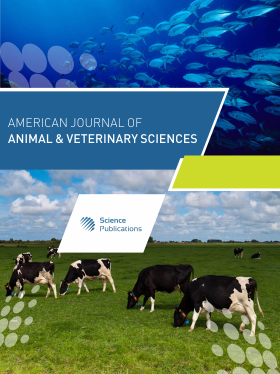Adaptation to High Grain Diets Proceeds Through Minimal Immune System Stimulation and Differences in Extracellular Matrix Protein Expression in A Model of Subacute Ruminal Acidosis in Non-lactating Dairy Cows
- 1 University of Guelph, Canada
Abstract
Problem statement: Subacute Ruminal Acidosis (SARA) is a metabolic disorder affecting approximately 20% of all dairy cattle in North America. Although the presence of SARA has been described for some time, the etiology of the disorder remains uncertain. For example, many animals diagnosed with SARA seem to remodel and adapt their epithelium to accommodate the stresses imposed by SARA, but not before exacting a significant health and economic toll. Specifically, a search is on in which a desire to identify the system and associated pathways that are causative agents in the progression and development of SARA is evident. We hypothesize that adaptation to SARA is facilitated by the immune system. Approach: In order to answer of this question, 4 mature, non-lactating dairy cattle were transitioned from a High Fiber (HF; 0% grain) diet to High Grain (HG; 65% grain) diet. Having fed the HG diet for three weeks, the cattle were then transitioned back to the HF diet for an additional three weeks to facilitate adaptation. SARA was diagnosed by pH data only during the first week and not during the remaining weeks, indicating that adaptation to the HG diet took place within one week. Results: In this study, significant (p<0.05) extracellular matrix protein changes (COL4A1, LAMB1) were seen during this study indicating a change in matrix architecture to facilitate adaptation. In addition, similar significant (p<0.05) patterns of expression of inflammatory cytokines and mediators of the LPS-mediated toll-like receptor pathway were seen. Conclusion: These results indicate that the immune system is involved in the adaptation of the rumen epithelium to a HG diet, but to a lesser extent than was previously thought. This is the first time an attempt has been made to link the immune system and wound healing in the adaptation of the bovine rumen to a HG diet.
DOI: https://doi.org/10.3844/ajavsp.2012.84.91

- 4,586 Views
- 4,195 Downloads
- 11 Citations
Download
Keywords
- Subacute Ruminal Acidosis (SARA)
- adaptation
- inflammatory cytokines
- immune system
- rumen epithelium
- immune system
- wound healing
- extracellular matrix remodeling
